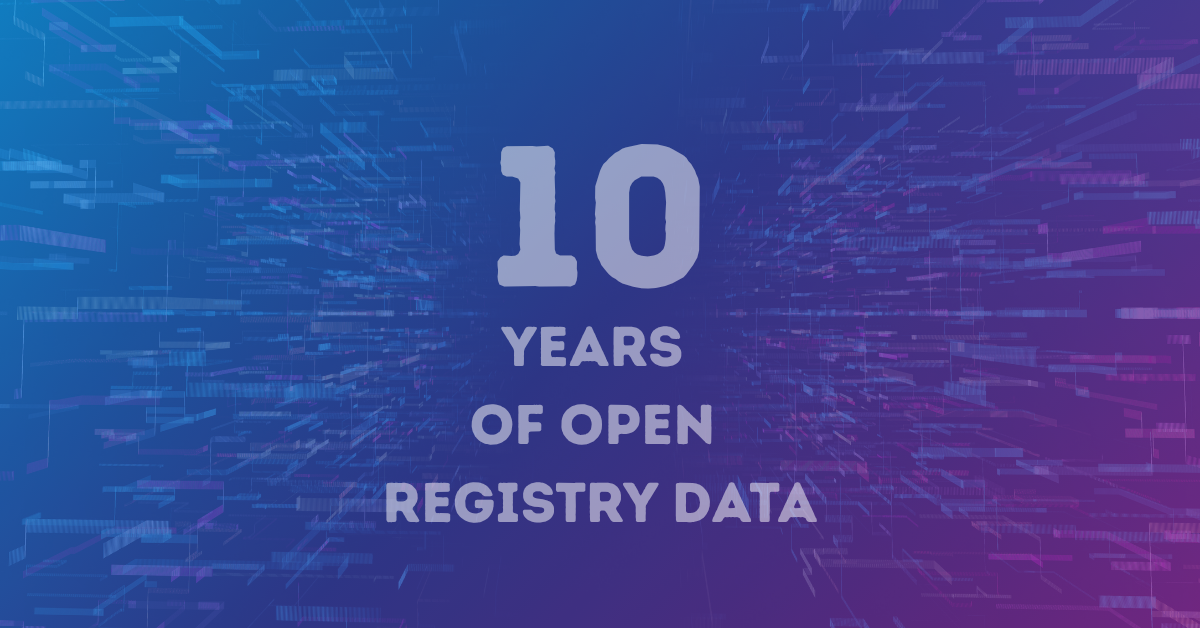In 2015, the UK’s Companies House made a bold move, granting free, public access to digital data on its companies register. A decade later, that decision has shaped a new global standard for transparency, accessibility, and accountability in the registry world.
With over 16.5 billion annual data requests, Companies House has proven that registries are not just record keepers, they are engines of trust, enablers of commerce, and guardians against financial crime.
“In 2015 we broke new ground for corporate registers with our commitment to open data,” said Charlie Boundy, Chief Data Officer at Companies House on a recent interview. “Ten years later, that bold decision has led to Companies House supporting 16 billion searches a year, underpinning millions of pounds of everyday financial decisions.”
The Impact of Open Data
The success of Companies House’s “Find and update company information” service has delivered more than just visibility. Its estimated £1 to £3 billion annual value to users reflects the broader benefits of open registry data: business confidence through easy verification, stronger enforcement against money laundering, fintech innovation through open APIs, and the democratization of essential business information.
The UK’s approach has inspired reforms and innovation in registries across Europe, the Commonwealth, and beyond. From compliance gains to investor protection and better customer due diligence, the ripple effects are measurable and significant.
Open data has become a powerful tool for governments and businesses alike. It strengthens institutional trust, promotes accountability, and equips societies with the information they need to detect risk, expose wrongdoing, and build opportunity. Ten years on, the case for open registry data is not just proven, it is foundational.
Lessons for the Global Registry Community
The open data movement has shown that access alone is no longer enough. To deliver real value, registry data must be accurate, structured, and built for reuse. That means investing in data governance, implementing technologies like identity verification, and designing systems with interoperability in mind.
Equally, the role of registries is evolving. They are no longer passive recipients of information. Increasingly, they are becoming active participants in safeguarding economic systems. With laws like the Economic Crime and Corporate Transparency Act (ECCTA), registries now have a mandate to verify, enforce, and collaborate. The move toward digital-first, intelligence-driven registers is not a future ambition, it is already underway.

Leading the Digital Evolution
The next decade of open registry data will look different from the last. We believe it will be shaped by trusted digital ecosystems where data flows securely across borders through platforms like MetaReg, where public and private sectors collaborate in real time, and where registries can act confidently on the quality of the information they hold.
At Foster Moore, we want every registry, regardless of size or maturity, to be part of that future. That means helping jurisdictions prepare to modernize their systems, define their open data strategies, and unlock the full value of the information they manage.

Ready to Take the Next Step?
Whether you are looking to open your data, strengthen registry security, or plan a digital transformation, Foster Moore can help. We offer tailored workshops and strategic engagements to explore what is possible in your registry environment.
Contact us to start the conversation. Let’s build a smarter, more connected registry ecosystem, together.
